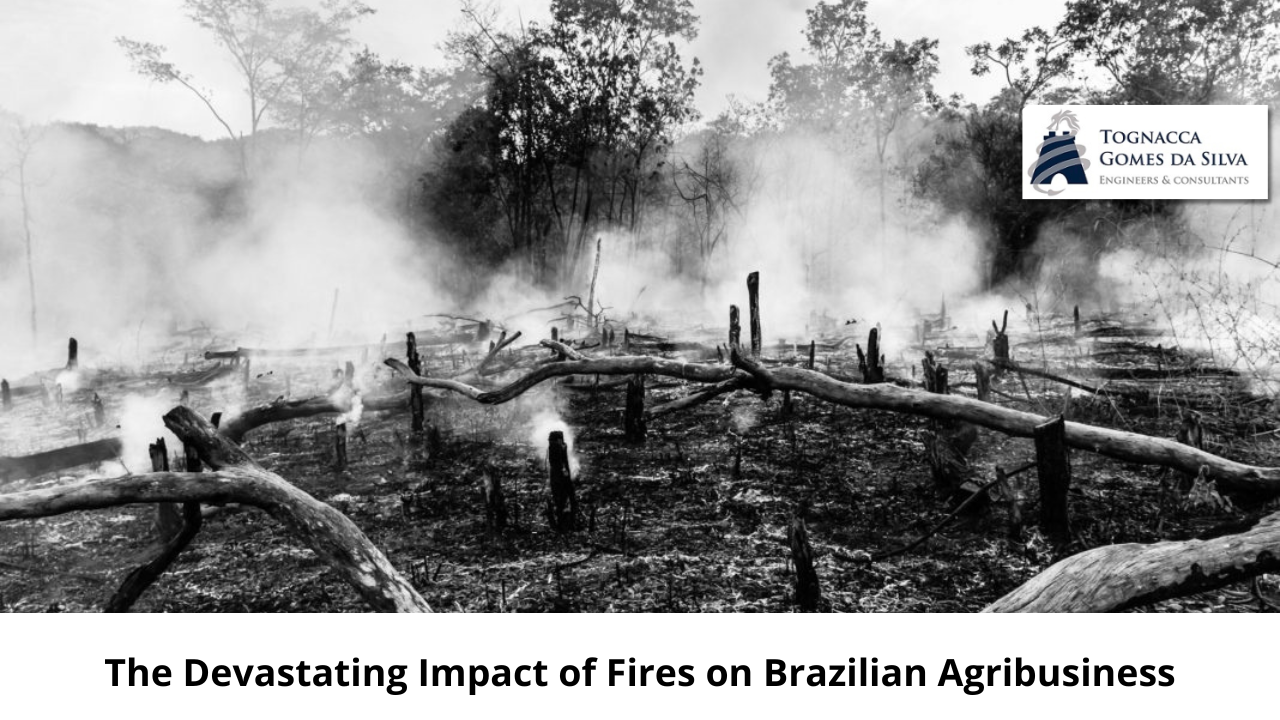A Threat to Sustainability and Food Security.
The fires that spread across different regions of Brazil have a devastating impact not only on the environment, but also on agribusiness, one of the pillars of the national economy. In addition to threatening the future of future generations, the fires compromise the sustainability of the agricultural sector and, consequently, the food security of millions of Brazilians.
Agribusiness depends on balanced environmental conditions to prosper. When deforestation and uncontrolled fires come into play, the negative impacts become evident on several fronts:
Reduction in Soil Fertility Fires destroy decomposing fungi and bacteria essential for maintaining soil fertility. Without these organisms, the production of mineral salts and the decomposition of dead organic matter are drastically reduced, resulting in poor, less productive soils. Furthermore, burned soil becomes more susceptible to erosion, which further compromises agricultural production and increases costs for producers.
Soil Moisture Reduction Another negative effect of fires is the reduction of soil moisture. Without the necessary moisture, the soil becomes more compact, making it difficult for plant roots to expand. As a result, planted seeds often fail to germinate, which represents an additional expense for farmers who need to replant their crops, increasing production costs.
Biodiversity Reduction Fires also cause a significant reduction in biodiversity, unbalancing entire ecosystems. This loss of biological diversity directly affects the supply of raw materials and increases the vulnerability of the agricultural sector to pests and diseases. A less diverse environment is less resilient, which can lead to more frequent and severe agricultural crises, with direct impacts on food prices.
Emission of harmful gases into the atmosphere In addition to the direct impacts on soil and biodiversity, fires release large quantities of harmful gases into the atmosphere, contributing to the greenhouse effect and global warming. Rising temperatures and changing weather patterns are other factors that can further aggravate the situation in agribusiness, making growing conditions even more challenging.
The Need for Urgent Action Given this worrying scenario, it is imperative that effective public policies are implemented to combat deforestation and promote sustainable agricultural practices. Preserving the environment is not just a matter of social responsibility, but an essential condition to guarantee food security for future generations and the continuity of agribusiness in Brazil.
The fires, if not contained, seriously threaten the future of agricultural production in Brazil, compromising not only the country’s economy, but also the food security of millions of Brazilians. The sustainability of agribusiness and the preservation of natural resources are fundamental so that we can continue offering quality food at affordable prices for everyone.
( fonte: Digital Agro )



